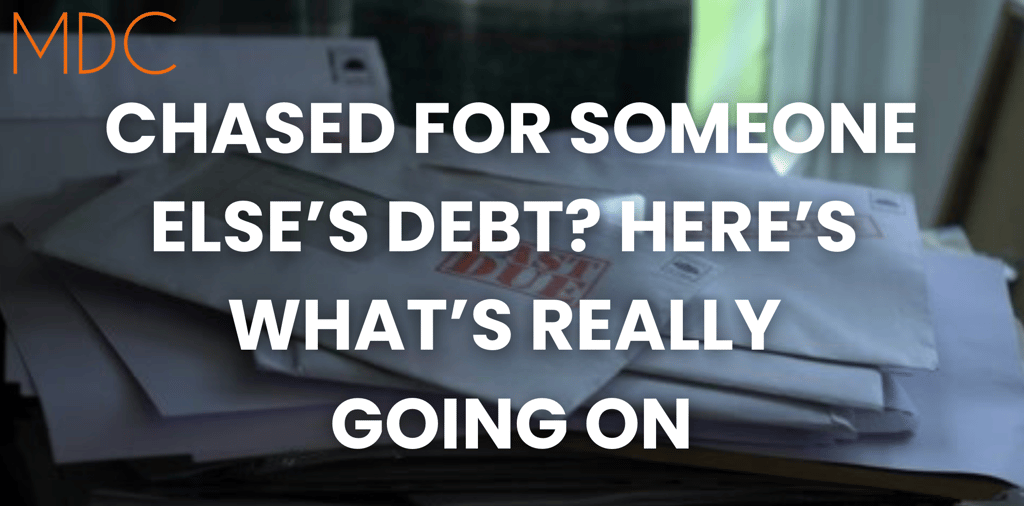Chased for Someone Else’s Debt? Here’s What’s Really Going On
Being chased for a debt that isn’t yours? Learn why mistakes happen in debt collection, common myths, and how to protect yourself.
NEWS


The Guardian recently highlighted a nightmare scenario: people being hounded for a stranger’s bills. It’s upsetting, unfair, and frankly unnecessary when debt recovery is handled properly. At McVicar, we know the debt collection process can feel intimidating – especially when you’re caught up in a case that has nothing to do with you. So, let’s break down why this happens, clear up a few myths, and explain what you can do if it lands on your doorstep.
Why Do Debt Collectors Get It Wrong?
In most cases, mistakes come down to poor tracing. If someone has moved house or shares a similar name, outdated data can result in letters being sent to the wrong person. Combine that with lack of verification and you’ve got the perfect recipe for a mistaken identity case.
When debt recovery is done properly, collectors should:
- Confirm the debt with paperwork (contracts, invoices, statements).
- Carry out robust identity and address checks.
- Stop collection activity immediately if the debt is disputed.
Sadly, not all agencies get this right – which is where problems start.
Myths About Debt Collection
Let’s clear the air on a few common myths:
- If I ignore the letters, it will go away.” Wrong. Ignoring a debt claim – even if it isn’t yours – could lead to a County Court Judgment (CCJ) in your name. Always respond.
- “Collectors can’t prove it anyway.” They should be able to. You have the right to request proof, and if they can’t provide it, they can’t enforce it.
- “Debt collectors are unregulated.” Not true. Agencies must follow consumer protection laws, and harassment or false threats are illegal.
What To Do If You’re Chased for the Wrong Debt
1. Ask for proof in writing – Request the original documents showing how the debt arose.
2. Provide ID carefully – Send a copy of photo ID or proof of address to show you’re not the person they’re after.
3. Keep records – Save all letters and emails. This creates a paper trail if you need to escalate.
4. Seek advice – Citizens Advice and debt charities can guide you.
5. Complain if necessary – If an agency ignores evidence or acts unfairly, you can raise a complaint with regulators.
How McVicar Does Things Differently
We believe debt collection should never feel like harassment. Our process is built on fairness, transparency, and accuracy. That means:
- Using professional tracing tools to reduce mistakes.
- Checking every case for real, documented evidence.
- Pausing collections if someone disputes the debt until it’s properly reviewed.
Because let’s be honest – no one should be put through the stress of being chased for a bill that isn’t theirs.
Final Word
Being targeted for a debt you don’t owe is frustrating, but it doesn’t have to spiral. By knowing your rights, asking the right questions, and holding agencies to account, you can take control of the situation.
At McVicar, we’re committed to showing that debt recovery can be done fairly, legally, and with respect – the way it should be.

